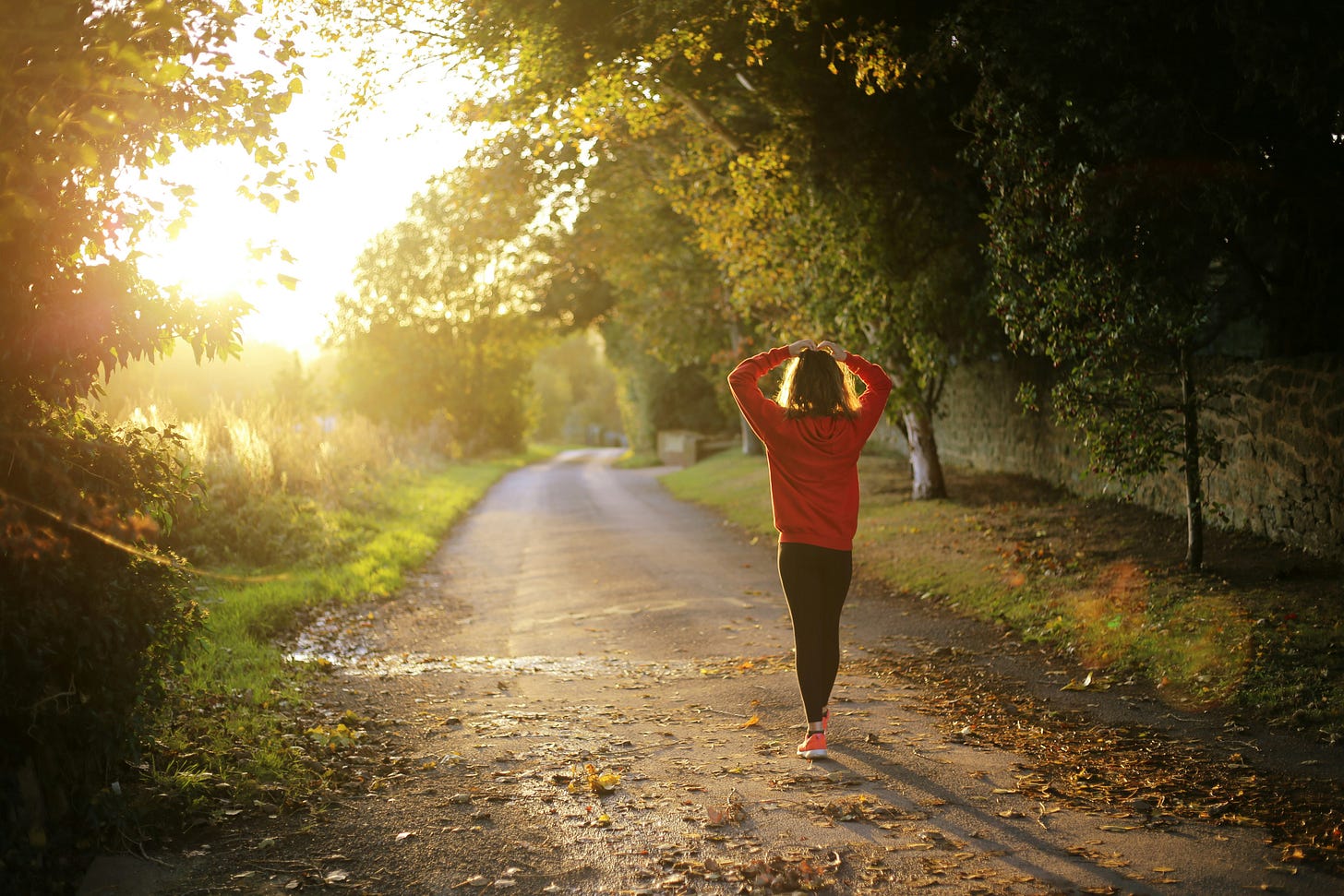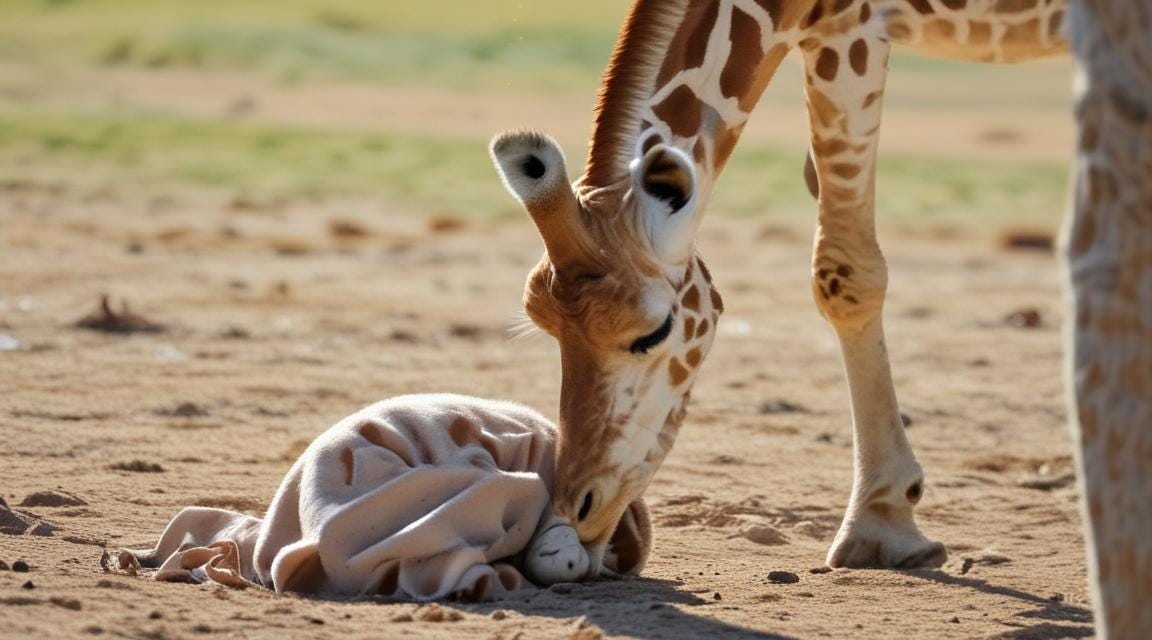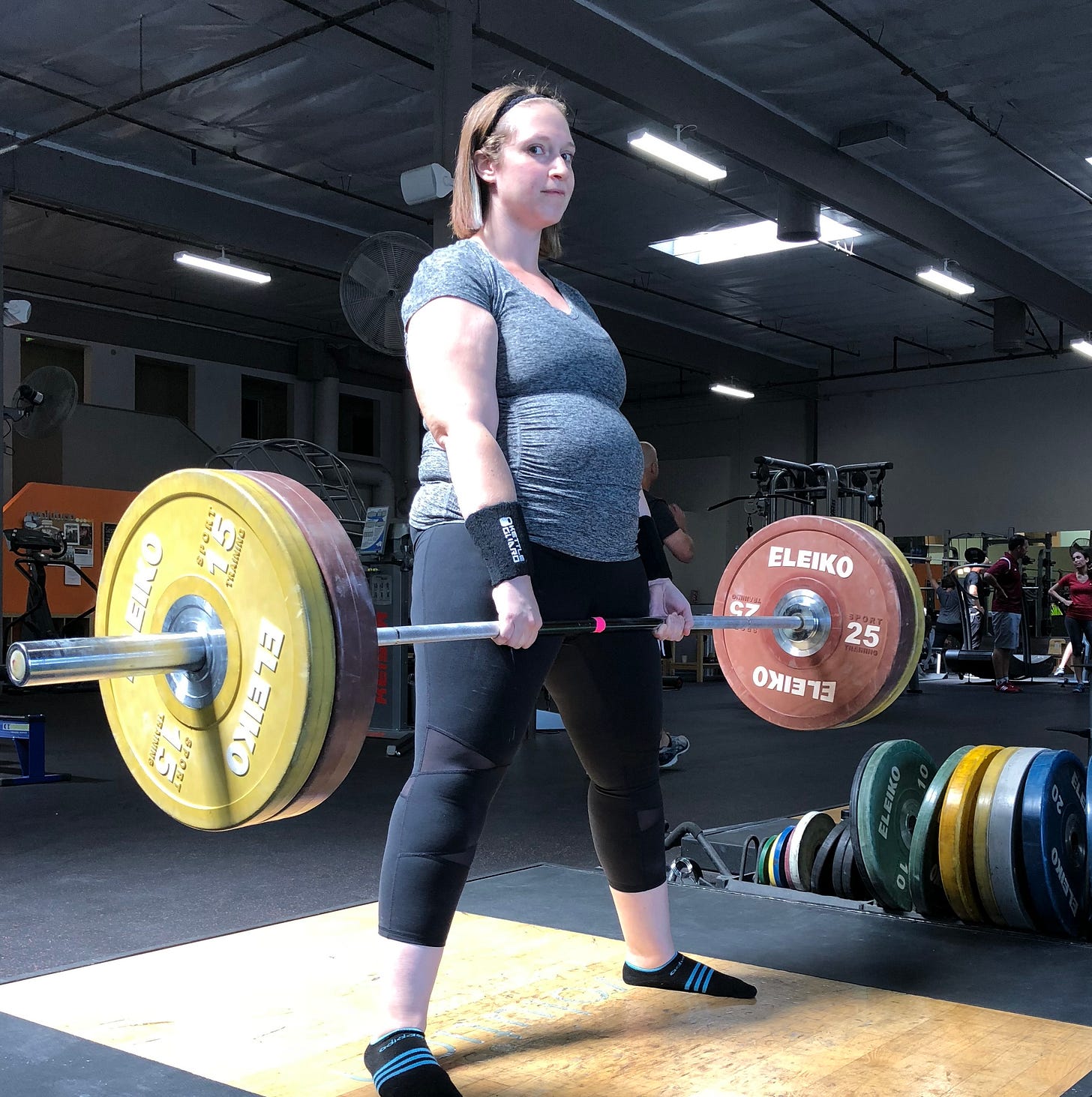Deep down, I think everyone who claims to enjoy running is lying

One staple of school applications that I’ve never quite understood is the “describe yourself in five adjectives” exercise. I distantly remember having to do this when I was applying to college lo so many years ago, and in recent years I’ve had to do it for my children in their school applications, and it still sucks.
The exercise quickly becomes a sort of reverse-psychology mind game, where the player tries to guess what the application’s reviewer wants to hear. If I call my kid “sensitive,” will the school read that as “Oh shit, this kid starts sobbing at the drop of a hat?” “Hard-working” or “conscientious” are probably good choices for school applications, but do they maybe imply that your kid sucks at everything and is overcompensating? When I was a kid I had the opposite problem, so I suppose I would have been called “gifted” or some other similar word to describe someone who doesn’t try hard enough. It just seemed like there was no good reason to put effort into doing something I was bad at. Like running.
Last week, I wrote about how some video games seem like torture:
But nothing has ever felt more torturous to me in my entire life than running. My older sister is a passionate long-distance runner, and many people I know seem to enjoy the occasional half-marathon or daily 5-mile run, and deep down I truly believe it’s some kind of performance art and they’re fucking with me. Or else they have some kind of deep self-loathing and running feels so bad that they think they deserve it.
How can they actually enjoy pounding the hell out of their knees? Are they not spending the entire time doing math? (E.g.: I’ve run .15 miles, and I plan to run 3 miles, so if I’ve run 3/20s of a mile then I’m 1/20 through the entire run, etc.) Also, almost every humor-focused creative writing class I’ve taken has included a runner writing a piece about shitting themselves, which is somehow both gross and a flex. No, thank you.
I know a lot of this has to do with the specific flesh suit my consciousness is strapped into, which is larger than my doctors would prefer and weirdly wheezy and definitely not designed for running. For a long time, I thought that meant that I wasn’t athletic at all. I was almost 30 years old and the mother of a 2-year-old when I realized that, actually, I’m strong as hell and pack a seriously powerful punch. But before that, I believed on some level athletic = runner.
This belief meant that I’ve gone through several extremely unsuccessful attempts to train to become the kind of person who could run ten miles without stopping. All of them ended in misery.
Another word that definitely wouldn’t make my top 5 school application adjectives for myself is “graceful.” I’ve put a lot of effort over the years into keeping my clumsiness under control with a strict set of rules:
While walking, do not attempt to eat, text, remove a book from your bag, or carry on a spirited conversation.
Never wear heels thin enough to get stuck in a grating.
No team sports, especially those requiring hand-eye coordination, like volleyball, unless someone on your team has some reason for wanting a concussion.
Never sit in the back seat of a two-door car, especially while wearing a skirt.
When scuba diving or snorkeling, put on your flippers at the last minute, lest the tank strapped to your back cause you to overbalance and end up like a flipped-over turtle.
With these rules, I manage (most of the time) to avoid face-planting off a cliff, and few people would guess that I’m about as awkward as a newborn giraffe. Successes in all shapes and sizes must be embraced.

My first serious attempt to become a runner was in graduate school. I was trying to write a dissertation, and I figured that I could use some discipline in my life. I tried not to think about how, even when I was in elementary school and had to do those stupid presidential fitness exams, I cheated and ran nine laps instead of ten. Instead I told myself that it was healthy and maybe even noble for a recovering gifted kid to spend a lot of time doing something that I’m actively terrible at. There are a lot of studies that show that gifted kids avoid tasks they don’t immediately excel at, and I hoped that sticking with something I had painfully little aptitude for and found high-key unpleasant would help me cultivate the kind of mental grit that I’d need for a serious career in academia.
I set myself a goal. At the end of six months, I wanted to be able to run five miles, at a ten-minute mile pace, and be able to hold a conversation at the same time. (It didn’t occur to me that, as someone so clumsy I couldn’t carry on a spirited conversation while walking, this goal was inherently dangerous.) Yes, I know to an actual runner this goal is laughable, and it’s a little embarrassing to even share it, so I’m going to share a photo of myself deadlifting 200 lbs at 7 months pregnant with my second child to remind you that I’m still a badass. I’m just a badass who really, really sucks at running.
I set off. At first I could barely run at all, and even a fast walk (4.5 miles/hour) was difficult. But I used my treadmill every day for about 45 minutes while catching up on old TV episodes. By early February, I was jogging at about 5.7 miles per hour for 45 minutes every single day. Success seemed within reach! Take that, rules!
Then I felt a sharp pain in my lower back, on the right side. I had no idea what it was. Had I pulled a muscle? Pinched a nerve? It hurt every time I took a step. The pain wasn’t excruciating when I walked, but I did have a definite limp. Running was extremely painful. I waited two weeks, which seemed to me to be at the outside of what a muscle injury would take to heal, and then I went to see a sports medicine specialist at the university health center. She informed me that, although I would need an MRI to make sure, it sounded like I had a sacral stress fracture.
How did this happen? In short, poor bone density, bad posture, and most importantly, too much running without taking breaks. Apparently, running every day was preventing my body from recuperating. While it seemed counter-intuitive, the best way to reach my goal would have been to alternate running days with strength training, or simply with days off. And the only way to heal from this injury caused by daily exercise was ten weeks of staying off my feet as much as possible and doing no physical activity at all. During which time I, of course, lost all my running progress.
The irony was exquisite, or it would have been if I wasn’t so angry at myself. Also, I had to use a crutch, which was embarrassing and annoying. People would look at me knowingly and say, “There must be a story behind that!” To which I would reply, “Yeah, it’s a great one. I ran five miles every day for six months” (a little exaggeration) “and then one day, I had a fractured pelvis!”
Some of my cleverer questioners would get confused looks and say, “You don’t look like you have a fractured pelvis…” There is absolutely no good response to this observation.
Eventually I started telling people it was a fashion statement and that I had another at home if they wanted to be trendy like me. Or that I was doing an experiment to see if, like Dr. House, walking with a crutch meant that I could get away with being a total dick to everyone around me. At the time, this was a very topical reference.
My second running attempt was a little more successful — I actually got my mile time under nine minutes for a 5K, which was huge for me — but it ended when I was pregnant with my first child and my bones turned to jell-o and running made my knees feel like they might dislocate themselves.
It’s been nearly twelve years, and I’ve never seriously attempted to become a runner again. A handful of times when I’ve had really big feelings I didn’t feel remotely equipped to handle I’ve strapped on my sneakers and run for a half an hour away from my house and my life in a way that feels sort of like fleeing, like my version of going out for a pack of smokes and never returning, until the burning pain in my lungs forces me to slow down and turn around. But I haven’t been tempted to actually get into running in a serious way.
A lot of that has to do with finding physical activities that I actually enjoy, which means I don’t need to keep bashing my head against the wall with ones that I hate while telling myself that doing something I loathe and am terrible at is good for building character. A lot of it also has to do with the work I’ve put into unlearning stories about myself and about bodies, weight, and diet culture. If you’re on that journey too, I can’t recommend the work of Kate Manne and Virginia Sole-Smith enough. And if you’re interested in or enjoy running and have a body that isn’t the traditional tiny lithe runner’s body, this book is amazing.
And never forget that what we think of as “healthy” is highly culturally contingent. I think a lot about something that a tour guide said to my family when we were touring a Roman bath in Israel during my bat mitzvah trip. She was talking about how the Romans thought it was healthy to sit and shvitz, and then she smiled sardonically and said, “And now we think it’s healthy to run on a treadmill for an hour!”
I still worry that how terrible I am at running means I’ll be immediate toast in the case of a zombie apocalypse, but maybe that’s for the best. The survivors always seem miserable, anyway. I’d make a much better zombie, shambling along at a moderate pace, with zero body-image issues and not a care in the world.





Donna- Thanks for sharing this. You had me at the title. Which reminded me of a possible other reality: "Deep down, everyone who says they like cold weather is lying." ;) Hope you're well.
Having had a similar experience, I can't agree more!!! But also psst come join the (literal, metaphorical) resistance... https://www.thecut.com/2022/02/casey-johnston-didnt-start-weight-lifting-to-be-strong.html